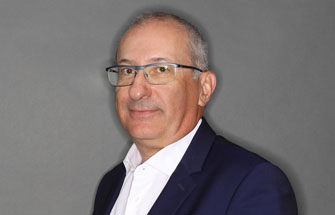Alexandre Rousseau, Chief Executive Officer of Société Générale Private Banking Monaco, shares his thoughts on Post-COVID.
How has Société Générale Private Banking Monaco reacted to the pandemic?
Well and quickly. We were the first bank in Monaco to introduce teleworking, starting in 2017. 70 employees were already working from home one day a week before the containment. In this regard, the pandemic accelerated a process that had already begun. In addition, the crisis has changed customer relations in favor of digital communication; it has also changed processes, with the use of electronic signatures for example.
Any lasting changes?
The use of the digital channel is a real and lasting change. Three major evolutions will last in the long term: the modification of the spatial occupancy, a consequence of teleworking; the frequent use of webinars for customer conferences or internal meetings: financial innovations, asset management, taxation, everything can be dealt with. Finally, the organization of Skype meetings dedicated to the client, and recorded.
How are customers experiencing these changes?
The pandemic has not generated panic. The health crisis is exogenous, not linked to the banking and financial system, unlike in 2008.
Clients appreciate the possibility of distance processing. There have been no incidents, we are able to handle everything. De-confinement is more difficult. With the rules of distance imposed, and less face-to-face staff, customer care in the agencies is slowed down. It will be necessary to change the interaction with the customer, and to undertake an educational and proactive approach to the dematerialization of payments.
Is it now possible to open an account online?
This opening is limited by the cross-border rules. They extend to all services, and include the identification of the country of residence, technical and factual information on the client's typology, a complete KYC process. To this end, we can exchange documents via digital channels and operate the account opening process remotely. However, we wanted to maintain the obligation to meet the client in person, but in a second stage.
What do you think of the digitalization of the banking world?
Generally speaking, it makes exchanges on the institutional presentation of products and services more flexible. For example, the digital law on data exchange allows us to have traceable conversations on Skype as long as we know how to encrypt and protect them.
Teleworking, the fruit of digitalization, now applies to all functions: front office, front, middle and back office support; the analysis of each file is carried out in a secure manner. Bankers can make social calls with their clients, discuss projects and write secure files to prepare a loan for example.
Monegasque law authorizes teleworking for up to 2/3 of working time. It is clear that our desire is to accompany this change in a significant way, which will allow us to considerably reduce the carbon footprint, a wish of the Principality.
Did these changes require additional investment?
We had already adapted our IT system according to the criteria of the National Digital Security Agency. Our IT trajectory has not been questioned, it has been interactive for several years given our numerous exchanges with Luxembourg, France or Switzerland... We have only accelerated certain expenses, to secure all the applications quickly on functions that had not been a priority until then. These times of crisis are often conducive to fraud attempts, it is necessary to be vigilant at all levels.
How can we imagine the post-COVID-19 era?
The inflation of digitalization will surely lead to a reduction in the use of cash. Robotic cash registers, in the form of ATMs, will be deployed. In France, this type of ATM is already fully operational in dedicated areas, giving agents more availability and therefore more time to give to their customers.
In Monaco, the real estate impact of service companies will certainly tend to be reduced. Given the rarity of land in the Principality, there is no doubt that Monaco will be able to adapt that use of these areas.






